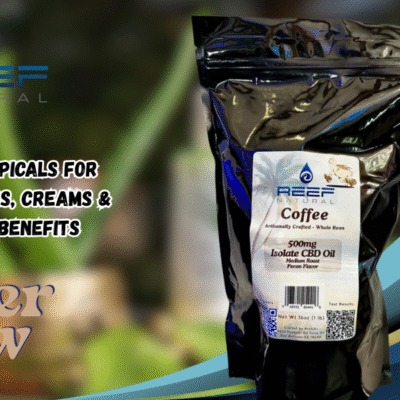Access to clean and safe drinking water is essential for maintaining good health. With growing concerns about water quality, many households are turning to water filters as a solution. However, with the plethora of options available, choosing the right water filter can be overwhelming. This comprehensive buyer’s guide will help you navigate the different types of water filters, their features, and factors to consider when making your decision.
Understanding Water Contaminants
Before diving into the types of water filters, it’s crucial to understand what contaminants you might be dealing with. Common impurities found in water include:
- Chlorine: Used in municipal water treatment, chlorine can affect taste and odor.
- Heavy Metals: Lead, mercury, and arsenic can leach into drinking water from old pipes.
- Bacteria and Viruses: Pathogens can cause serious health issues.
- Sediments: Dirt and other particles can affect water clarity and taste.
- Chemical Pollutants: Pesticides and industrial chemicals can contaminate water sources.
Testing your water quality is an essential first step. Home testing kits are available, or you can contact your local water supplier for a water quality report.
Types of Water Filters
Once you understand the contaminants in your water, you can choose the right type of filter. Here are the most common types:
A. Activated Carbon Filters
Activated carbon filters are among the most popular water filtration systems. They work by adsorbing impurities onto the surface of the carbon.
Pros:
- Effective at removing chlorine, bad odors, and tastes.
- Affordable and easy to install.
Cons:
- Not effective against heavy metals or pathogens.
- Requires regular replacement of filters.
B. Reverse Osmosis (RO) Filters
RO filters use a semi-permeable membrane to remove a wide range of contaminants, including heavy metals, salts, and microorganisms.
Pros:
- Highly effective at removing a broad spectrum of impurities.
- Produces purified water that tastes great.
Cons:
- Can waste a significant amount of water during filtration.
- More expensive and requires professional installation.
C. UV Filters
Ultraviolet (UV) filters use UV light to kill bacteria and viruses in water.
Pros:
- Highly effective against pathogens.
- Chemical-free and leaves no aftertaste.
Cons:
- Does not remove physical contaminants or chemicals.
- Requires electricity to operate.
D. Pitcher Filters
These portable filters are designed for convenience, filtering water as it is poured into a pitcher.
Pros:
- Affordable and easy to use.
- Convenient for small households or occasional use.
Cons:
- Limited filtration capacity.
- Slower filtration process.
E. Whole House Filters
Whole house systems are installed at the point of entry for water into the home, providing filtered water throughout the entire house.
Pros:
- Ensures all water used in the home is filtered.
- Reduces sediment, chlorine, and odors.
Cons:
- Higher initial cost and complex installation.
- May require more maintenance.
Key Features to Consider
When choosing a water filter, consider the following features:
A. Filtration Capacity
Evaluate how much water the filter can process and how often you’ll need to replace filters. Larger households may require filters with higher capacities.
B. Flow Rate
The flow rate indicates how quickly water can be filtered. For households that require a continuous supply of water, consider filters with higher flow rates.
C. Maintenance and Replacement Costs
Consider the cost of replacement filters and how often they need to be changed. Some systems may have higher initial costs but lower long-term maintenance expenses.
D. Certification
Look for filters that have been certified by reputable organizations, such as NSF International or the Water Quality Association (WQA). Certifications ensure that the filter meets specific performance standards.
E. Installation Requirements
Some filters are easy to install and require no plumbing modifications, while others may need professional installation. Consider your comfort level with DIY projects.
Assessing Your Water Needs
Your choice of water filter should align with your specific needs:
- Household Size: Larger families may require more robust filtration systems to meet their hydration needs.
- Water Source: If you rely on well water, you may need a filter that addresses specific contaminants common in well water, such as sediment and bacteria.
- Usage: Consider whether the filter will be used solely for drinking water or for cooking and washing as well.
Environmental Considerations
Choosing a water filter can also have environmental implications. Filters that reduce reliance on bottled water contribute to less plastic waste. Additionally, some systems are designed to be more efficient, using less water and energy.
Budget Considerations
Water filters come in a wide range of prices. While it can be tempting to choose the cheapest option, consider the long-term costs associated with maintenance and filter replacements. Investing in a higher-quality filter may save you money and hassle over time.
Making Your Decision
After assessing your water quality, understanding the different types of filters, and considering your specific needs and budget, you can make an informed decision. Here are a few steps to finalize your choice:
- Research Brands: Look for reputable brands known for quality and reliability. Read reviews and customer feedback to gauge performance.
- Compare Features: Create a comparison chart of the filters you’re considering, noting their features, pros, and cons.
- Consult Experts: If you’re still unsure, consult a water quality expert or a plumbing professional for personalized recommendations.
Conclusion
Selecting the right water filter is a crucial step in ensuring access to clean, safe drinking water for you and your family. By understanding the contaminants present in your water, evaluating the various types of filters, and considering your specific needs, you can select a filter that promotes health and enhances your quality of life.
Investing in a reliable water filter not only improves your hydration but also contributes to a healthier lifestyle and a more sustainable environment. Take the time to make an informed decision, and enjoy the benefits of clean, refreshing water at home.


